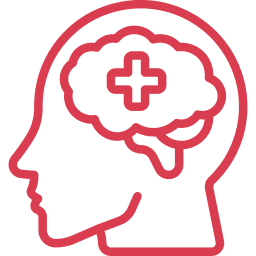Anxiety
Anxiety services offered in Doylestown and King Of Prussia, PA

What is Anxiety?
Anxiety is something everyone experiences and helps us know when something is wrong by making us feel a certain way. Even though being anxious can be good or helpful in some situations, you might feel like you’re experiencing it too often or too strongly. If you feel like you’re too anxious, we can help. Our professional team has helped hundreds of patients experiencing anxiety feel better and like they’re back in control. Let us help you slow down your racing thoughts and get you back to living life.


Signs & Symptoms of Anxiety
Anxiety looks and feels different for everyone. How you experience anxiety may not be the same as your friend describes it or from what you hear and see on social media. We know that sometimes it can be difficult to explain how you’re feeling, so below are some common symptoms to help you identify whether or not Anxiety is something you should bring up during your appointment.

Excessive Worry:: You find yourself filled with apprehensive expectations more days than not about one or more activities (like work or school).

Racing Thoughts: Your mind feels like it’s going too fast to catch up, and you can’t seem to slow it down.

You Feel Restless or on Edge: Even when you’re doing something relaxing, you feel like you have to be moving or doing something more.

Easily Fatigued: You feel really tired easily, even after you do an activity that you don’t think should be tiring (like dishes or laundry).

Difficulty Concentrating: You have a hard time focusing on what you’re doing because of your racing thoughts.

Irritability: You feel easily annoyed or made angry, usually by smaller things that wouldn’t typically bother you as much.

Muscle Tension: You’ve noticed that your muscles are usually really tense. This can look like clenching your jaw or clenching your fists.

Sleep Disturbance: You have difficulty falling asleep or staying asleep. This is usually because your thoughts are racing.

Treatment Options
We understand that your anxiety can feel impossible to overcome. You’ve probably already tried to help yourself too. Below are a few things that can help reduce or even eliminate some of your symptoms.

Medication: A prescription from your P.S. Psychiatry provider can help get your body’s chemicals back in balance.

Therapy: Talking with a licensed therapist is a great place to learn different strategies to cope with your anxiety.

Nutrition: Nutritionists and dieticians are a wonderful resource to ensure your body gets all the nutrients it needs.

We're Here to Help
When you’re ready to talk, we’re ready to listen. Tap the button below to get in touch with P.S. Psychiatry and schedule your appointment.